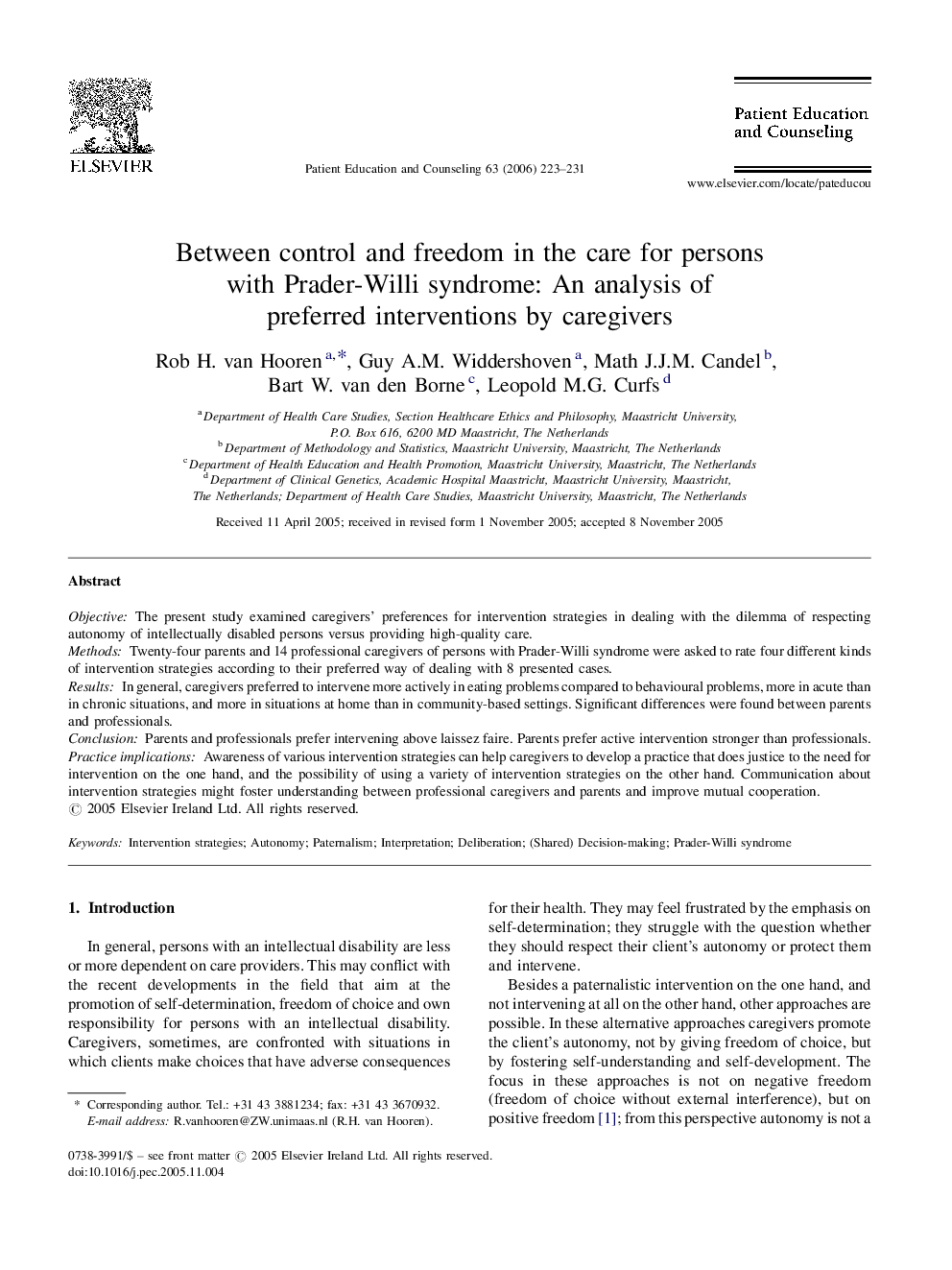| Article ID | Journal | Published Year | Pages | File Type |
|---|---|---|---|---|
| 3814533 | Patient Education and Counseling | 2006 | 9 Pages |
ObjectiveThe present study examined caregivers’ preferences for intervention strategies in dealing with the dilemma of respecting autonomy of intellectually disabled persons versus providing high-quality care.MethodsTwenty-four parents and 14 professional caregivers of persons with Prader-Willi syndrome were asked to rate four different kinds of intervention strategies according to their preferred way of dealing with 8 presented cases.ResultsIn general, caregivers preferred to intervene more actively in eating problems compared to behavioural problems, more in acute than in chronic situations, and more in situations at home than in community-based settings. Significant differences were found between parents and professionals.ConclusionParents and professionals prefer intervening above laissez faire. Parents prefer active intervention stronger than professionals.Practice implicationsAwareness of various intervention strategies can help caregivers to develop a practice that does justice to the need for intervention on the one hand, and the possibility of using a variety of intervention strategies on the other hand. Communication about intervention strategies might foster understanding between professional caregivers and parents and improve mutual cooperation.
